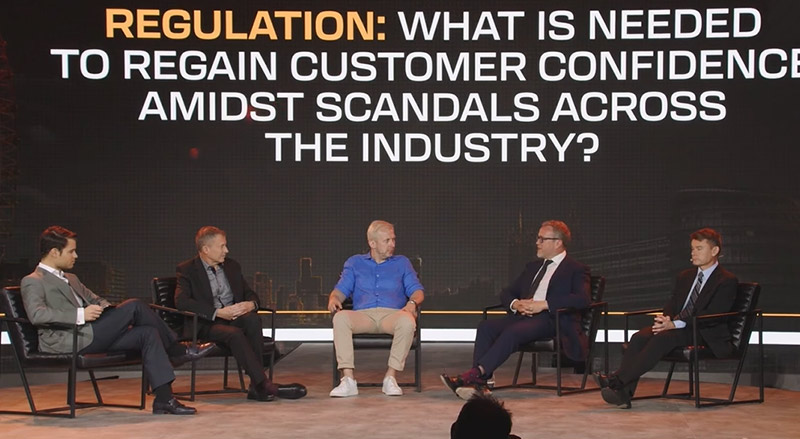In the ever-evolving landscape of the digital asset space, where innovation and potential for financial growth abound, the imperative for regulatory frameworks has become increasingly evident. As the market experiences exponential growth, investors and participants alike are navigating uncharted territories, facing unprecedented risks and uncertainties.
The absence of comprehensive regulations has resulted in a lack of accountability, leaving the door open for fraudulent activities, market manipulation, and security breaches. To restore trust and foster a sustainable environment for profit, it is imperative to recognize the pivotal role that regulation plays in ensuring market integrity, protecting investors, and facilitating the maturation of the digital asset industry.
This formed part of a panel discussion during the recent London Blockchain Conference, At the centre of the discussion was the recently signed law, Markets in Crypto Asset (MiCA). Providing their insights for this panel were:
What is MiCA?
MiCA has two primary objectives: harmonising digital asset regulations across EU member states and fostering innovation. Starting in 2024, MiCA will establish a comprehensive regulatory framework for digital assets, including issuers and service providers. Digital asset service providers, like exchanges and wallet providers, will need licences from national regulators to serve EU citizens.
MiCA will also introduce new classifications for various digital assets, specific rules, proof-of-funds requirements for stablecoin issuers, and a requirement for companies issuing digital assets/coins to publish a white paper detailing the project and potential risks.
Notably, MiCA builds upon existing EU regulatory frameworks rather than reinventing them. It will incorporate capital requirements, governance standards, authorisation procedures, supervision of issuers and service providers, and reserve requirements for stable currency issuers, such as a one-to-one reserve ratio for permanent redemption rights.
Businesses like more regulations and certainty
While it may seem counterintuitive, businesses typically like regulations as they help provide certainty and prevent legitimate enterprises from working in grey spaces. Kuskowski noted that there is a lot of data that supports this. He specifically pointed to the downturns and controversies within the digital asset sector, notably involving FTX which led to the ‘crypto winter’ in 2022.
Jones reiterated this point and noted that the formal promulgation of MiCA in 2024 will lead to more certainty in the sector – and ultimately increased capital in the pace as businesses feel more comfortable investing with certainty. ‘What we’ve seen from a UK point of view is a sort of proto-regulation that’s difficult to get through – at the moment contradictory messages are coming from different organisations.’
Part of the problem is that regulators are having a somewhat hard time in deciding exactly how to classify the different sectors of the industry – and introduce the appropriate rules, said Kirilenko.
‘Securities are considered a positive-sum situation, where value is created. In contrast, derivatives are zero-sum gains, where value and risk are just moved. This is why some view derivatives as gambling,’ he said.
‘SEC chair Gary Gensler knows what he’s talking about; he’s not an idiot. It’s just that the asset shifts in value, it’s hard to pin down, so it’s hard to regulate’.
